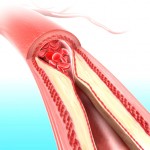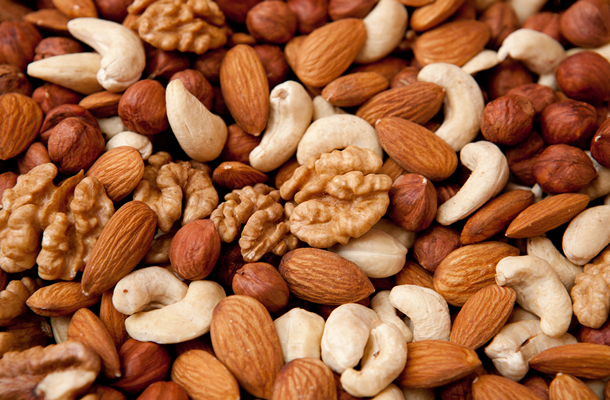Atherosclerosis risk for ischemic colitis (inflammation of colon) and bowel disease
 Atherosclerosis raises the risk for ischemic colitis (inflammation of the colon) and bowel disease. Atherosclerosis is a condition where the lining of the arteries becomes thickened with plaque build-up. This can cause the arteries to narrow, thus reducing blood flow. Atherosclerosis is a large contributor to heart disease, heart attack and stroke.
Atherosclerosis raises the risk for ischemic colitis (inflammation of the colon) and bowel disease. Atherosclerosis is a condition where the lining of the arteries becomes thickened with plaque build-up. This can cause the arteries to narrow, thus reducing blood flow. Atherosclerosis is a large contributor to heart disease, heart attack and stroke.
Ischemic colitis is when blood flow to the colon becomes reduced; therefore, atherosclerosis contribute to ischemic colitis by narrowing the arteries. This lack of blood flow to the colon limits the supply of oxygen for the cells in the digestive system.
Ischemic colitis can be misdiagnosed as other digestive issues and can heal on its own. Ischemic colitis can turn into an infection, so medication is required to prevent this. If damage is done to the colon, surgery may be required.
Ischemic colitis causes
It isn’t always clear as to why blood flow becomes reduced to the colon, but there are factors that can increase the risk of it, such as:
 Atherosclerosis
Atherosclerosis- Hypoglycemia
- Blood clot
- Bowel obstruction caused by a hernia
- Surgery that involves blood vessels
- Medical conditions affecting the blood, such as lupus or sickle cell anemia
- Cocaine or methamphetamine use
- Colon cancer
In rare cases, certain medications can contribute to ischemic colitis as well. Those medications include:
- Some heart and migraine medications
- Hormone medications
- Antibiotics
- Pseudoephedrine
- Certain medications for irritable bowel syndrome
- Chemotherapy
Ischemic colitis symptoms
Symptoms of ischemic colitis are:
 Pain, tenderness or cramping in the abdomen
Pain, tenderness or cramping in the abdomen- Bright-red or maroon colored stool
- Feeling of urgency to release bowels
- Diarrhea
- Nausea
When symptoms are on the right side of the abdomen there is a higher risk of complications. The arteries on the right side also supply blood to the small intestine, which can also be blocked. Pain in this area is generally much worse.
Blocked blood flow to the small intestine can become deadly. Surgery is required in order to remove the blockage.
Ischemic colitis treatment
The severity of the ischemic colitis decides which treatment will used. Symptoms can subside within days, but your doctor may still prescribe medications as a precaution to prevent infection.
Treatments for ischemic colitis include:
- Antibiotics
- IV fluids to prevent dehydration
- Treatment for underlying medical condition
- Avoiding medications that may constrict blood vessels
If the ischemic colitis is severe, surgery may be required in order to:
- Remove dead tissue
- Repair a hole in your colon
- Bypass blockage in an intestinal artery
- Remove part of the colon that has narrowed due to scarring, which is creating the blockage
Surgery is more likely in those with heart disease or low blood pressure.
Ischemic colitis prevention
It is difficult to prevent ischemic colitis as there are many factors that can contribute to its onset. Some prevention tips include:
- Exercising regularly
- Eating a healthy diet
- Treating heart conditions
- Controlling cholesterol and blood pressure
- Not smoking
Crohn’s disease causes, symptoms, treatments and role of gut bacteria
Crohn’s disease is an inflammatory bowel disease (IBD,) which affects the intestines by causing inflammation. This inflammation can trigger abdominal pain, diarrhea, weight loss and malnutrition. Inflammation can occur anywhere in the digestive tract and affects individuals differently. Continue reading…
-
Speed Up Metabolism
Metabolism is essentially the speed at which our bodys motor is runnin
-
The Asian Diet - Humble eating for a healthy heart.
It took the largest study of its kind, but the results are undeniab
-
Brief Fasting Can Be Good For You
Trying to lose weight? Youve probably figured out that cutting calori
-
The Hidden Secrets Of Weight Loss
The Hidden Secrets Of Weight Loss ----------------------------------
-
Things To Do When You Want To Lose Weight
No one ever said that losing weight and
-
12 Ways You Are Slowing Your Metabolism Without Knowing It
You’re getting eno
- DON'T MISS
- Weight Loss Diet Learn To Control Hunger
- Are You Looking For Fat Burning Pills?
- Fast Weight Loss is a Myth
- Fertility Foods
- Intermediate Fitness Program
- Establishing Nutritious Food Items For Dieting
- Advantages Of Perfecting Weight reduction Techniques
- Close Kept Secrets To Weight Loss Lesson 48
- The Conscious And Subconscious Mind Must Harmonize
- 7 Tips For Natural Ways To Lose Weight




